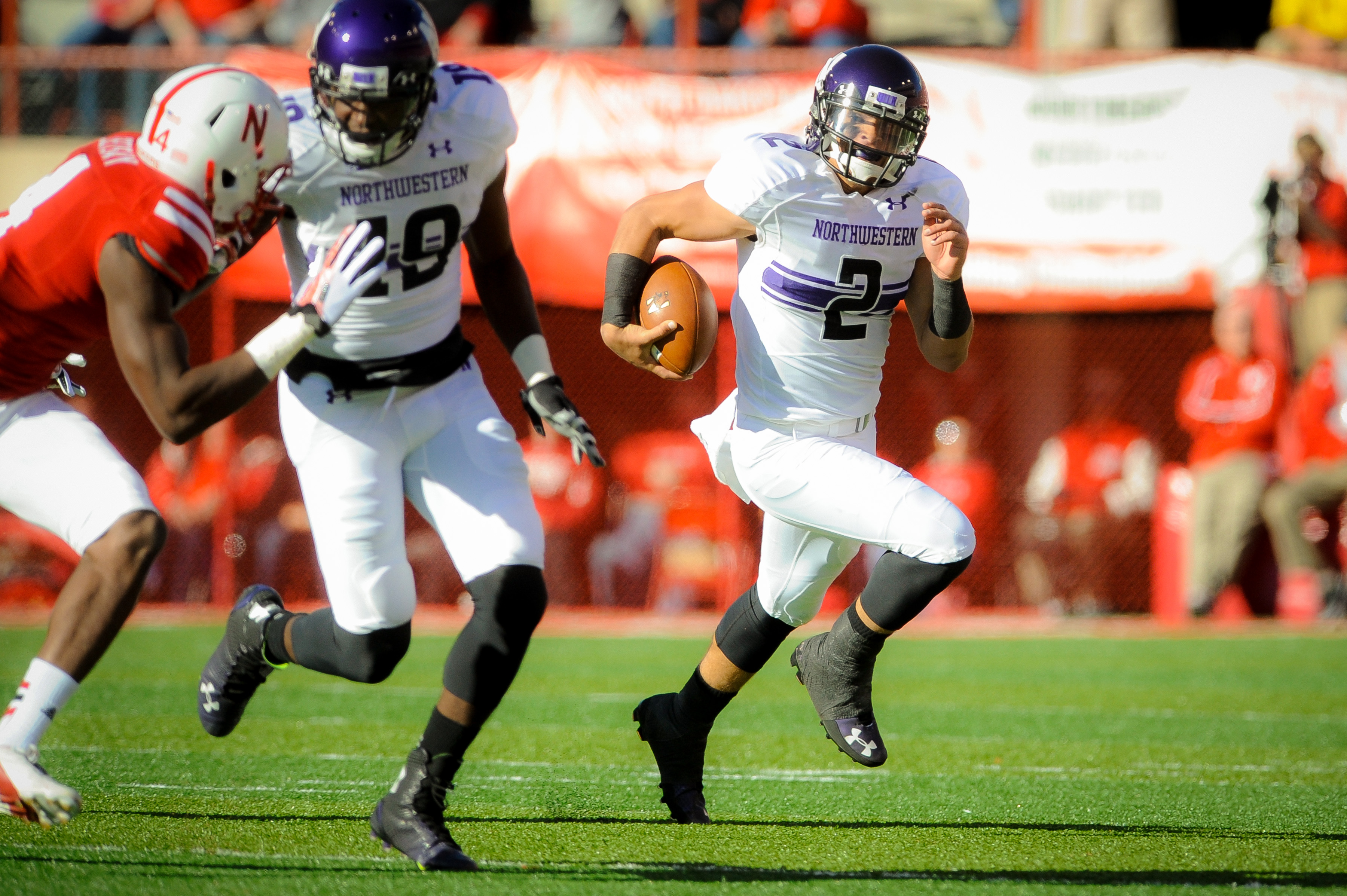Count the logical fallacies in this atrocious column on college athletes trying to unionize
Eric Francis / Getty Images


A free daily email with the biggest news stories of the day – and the best features from TheWeek.com
You are now subscribed
Your newsletter sign-up was successful
A regional director for the National Labor Relations Board last week ruled that football players at Northwestern were "employees" and could therefore form a union. To some, the ruling was not a step toward a more equitable system, but a dangerous, unnecessary precedent.
To wit, Washington Post columnist Sally Jenkins argued in a Sunday op-ed that the issue hinges on the "specious premise" that college athletes are "exploited and aggrieved" in the first place. Right from the outset then, her whole argument is total bunk.
You can quibble all you want about whether student athletes are exploited, but there is no question a bunch of them are "aggrieved." The mere fact that Northwestern players are pursuing the issue so stridently is proof of that. And then there's the class-action lawsuit filed by former UCLA hoops star Ed O'Bannon, who is challenging the NCAA's ban on compensating athletes. So yes, I'd say that settles the "aggrieved" question.
The Week
Escape your echo chamber. Get the facts behind the news, plus analysis from multiple perspectives.

Sign up for The Week's Free Newsletters
From our morning news briefing to a weekly Good News Newsletter, get the best of The Week delivered directly to your inbox.
From our morning news briefing to a weekly Good News Newsletter, get the best of The Week delivered directly to your inbox.
Yet you may not have even made it that far into the article after stumbling over its first, puzzling line:
It's hard to view Northwestern quarterback Kain Colter as the Che Guevara of college sports once you learn that he interned at Goldman Sachs. [Washington Post]
I don't even know where to begin. Is Jenkins arguing that financial internships preclude you from joining a union? Is she forgetting that Guevara was a medical student before he became a revolutionary? And is it really apt to liken literal revolution to college football?
To her credit, Jenkins raises many legitimate questions about student-athlete unionization, such as whether members would pay dues, and who all could join. But to simply throw up your hands and declare, "It's not looking out for college athletes to open the Pandora's box of employment and unionization," as Jenkins does, is a lazy attempt to ignore the problem. College athlete unionization will of course be problematic. It will of course raise thorny questions, experience hiccups, and need to be fine-tuned. But just because it will be a difficult process doesn't mean it isn't worth pursuing, especially since it would end an exploitative system that is at best cabalistic, and at worst racist.
It's not looking out for college athletes to dismiss their grievances simply because you don't know how to resolve them.
A free daily email with the biggest news stories of the day – and the best features from TheWeek.com
Jon Terbush is an associate editor at TheWeek.com covering politics, sports, and other things he finds interesting. He has previously written for Talking Points Memo, Raw Story, and Business Insider.
-
 Crisis in Cuba: a ‘golden opportunity’ for Washington?
Crisis in Cuba: a ‘golden opportunity’ for Washington?Talking Point The Trump administration is applying the pressure, and with Latin America swinging to the right, Havana is becoming more ‘politically isolated’
-
 5 thoroughly redacted cartoons about Pam Bondi protecting predators
5 thoroughly redacted cartoons about Pam Bondi protecting predatorsCartoons Artists take on the real victim, types of protection, and more
-
 Palestine Action and the trouble with defining terrorism
Palestine Action and the trouble with defining terrorismIn the Spotlight The issues with proscribing the group ‘became apparent as soon as the police began putting it into practice’
-
 Nobody seems surprised Wagner's Prigozhin died under suspicious circumstances
Nobody seems surprised Wagner's Prigozhin died under suspicious circumstancesSpeed Read
-
 Western mountain climbers allegedly left Pakistani porter to die on K2
Western mountain climbers allegedly left Pakistani porter to die on K2Speed Read
-
 'Circular saw blades' divide controversial Rio Grande buoys installed by Texas governor
'Circular saw blades' divide controversial Rio Grande buoys installed by Texas governorSpeed Read
-
 Los Angeles city workers stage 1-day walkout over labor conditions
Los Angeles city workers stage 1-day walkout over labor conditionsSpeed Read
-
 Mega Millions jackpot climbs to an estimated $1.55 billion
Mega Millions jackpot climbs to an estimated $1.55 billionSpeed Read
-
 Bangladesh dealing with worst dengue fever outbreak on record
Bangladesh dealing with worst dengue fever outbreak on recordSpeed Read
-
 Glacial outburst flooding in Juneau destroys homes
Glacial outburst flooding in Juneau destroys homesSpeed Read
-
 Scotland seeking 'monster hunters' to search for fabled Loch Ness creature
Scotland seeking 'monster hunters' to search for fabled Loch Ness creatureSpeed Read
